ON February 29 1962, Aldous Huxley wrote of psychedelic drugs in a letter to Albert Hofmann.
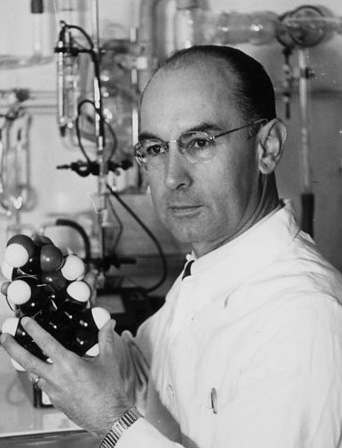
Hofmann had invented LSD, first synthesising lysergic acid diethylamide (LSD) in 1938. He experienced the world’s first acid trip” on April 19 1943 as he cycled home from his Swiss laboratory. That was Bicycle Day.
He tells of his discovery in the book LSD, My Problem Child (1979):
Time and again I hear or read that LSD was discovered by accident. This is only partly true. LSD came into being within a systematic research program, and the “accident” did not occur until much later: when LSD was already five years old, I happened to experience its unforeseeable effects in my own body—or rather, in my own mind
Looking back over my professional career to trace the influential events and decisions that eventually steered my work toward the synthesis of LSD, I realize that the most decisive step was my choice of employment upon completion of my chemistry studies. If that decision had been different, then this substance, which has become known the world over, might never have been created.
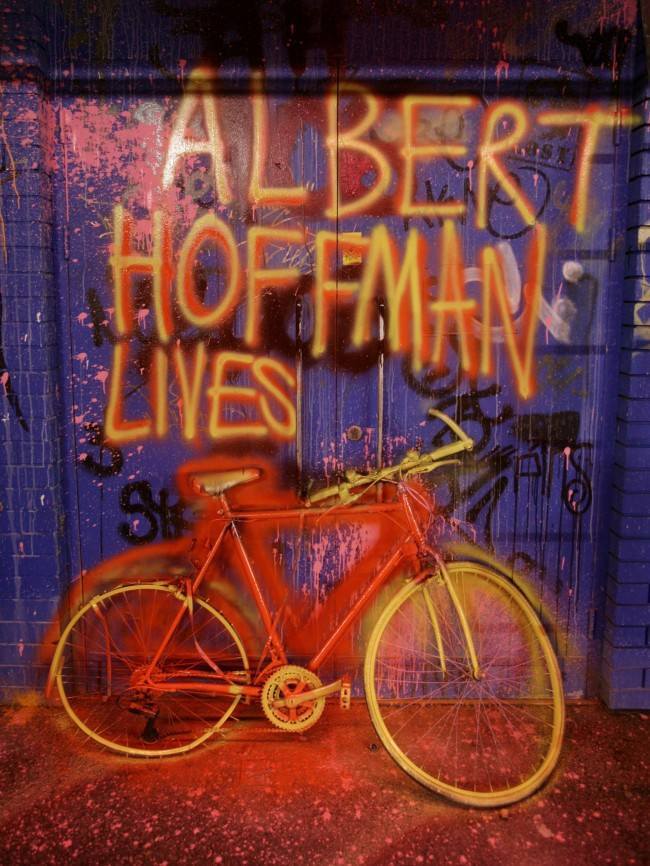
An artwork paying tribute to Albert Hofmann, the recently deceased inventor of LSD, on display at the ‘Cans festival’ in a road tunnel in Leake Street, Lambeth, London. Issue date: Friday May 2, 2008.
Hofmann took a measure of the drug and made his way home:
“On the way home, my condition began to assume threatening forms. Everything in my field of vision wavered and was distorted as if seen in a curved mirror. I also had the sensation of being unable to move from the spot. Nevertheless, my assistant later told me that we had travelled very rapidly.”
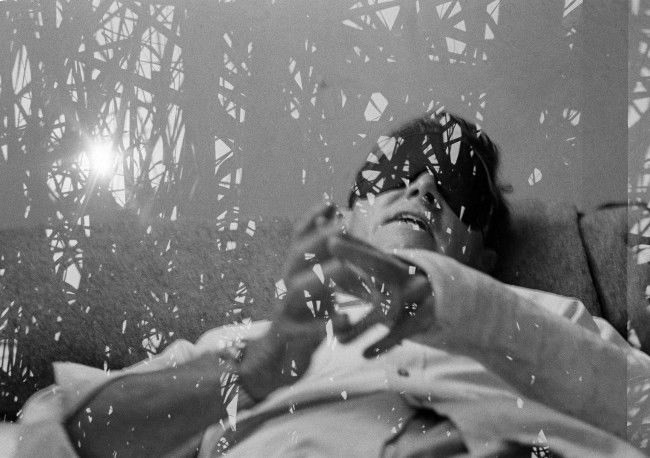
A volunteer undergoing LSD research project at an honor camp in Viejas, California, Sept. 6, 1966.
Did the drug have a use? Could LSD have a medicinal purpose? Maybe.
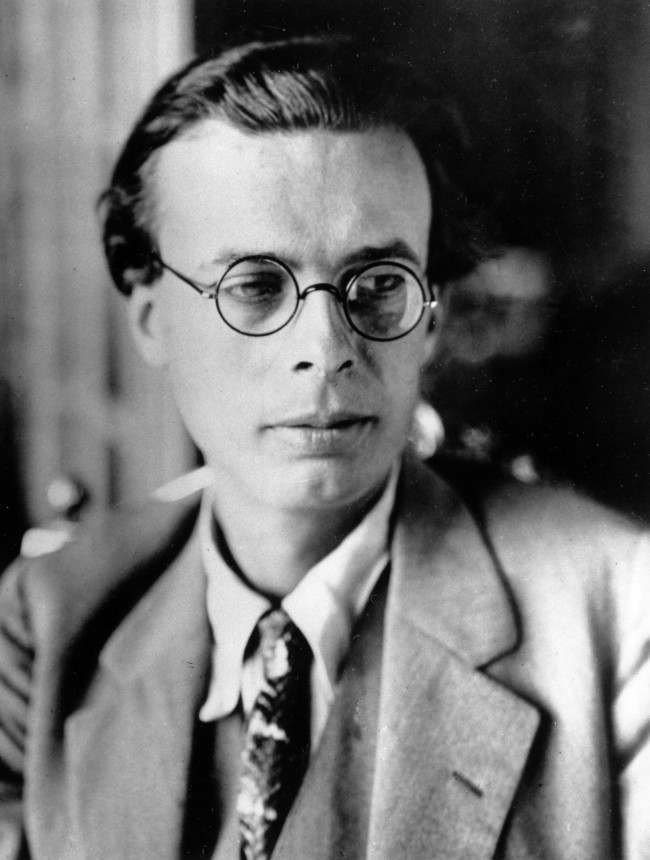
Author Aldous Huxley is seen on Oct. 23, 1928.
Even after LSD was banned in 1966, Hofmann maintained his belief that it had the power to solve psychological problems induced by “materialism, alienation from nature through industrialisation and increasing urbanisation, lack of satisfaction in professional employment in a mechanised, lifeless working world, ennui and purposelessness in wealthy, saturated society, and lack of a religious, nurturing, and meaningful philosophical foundation of life”.
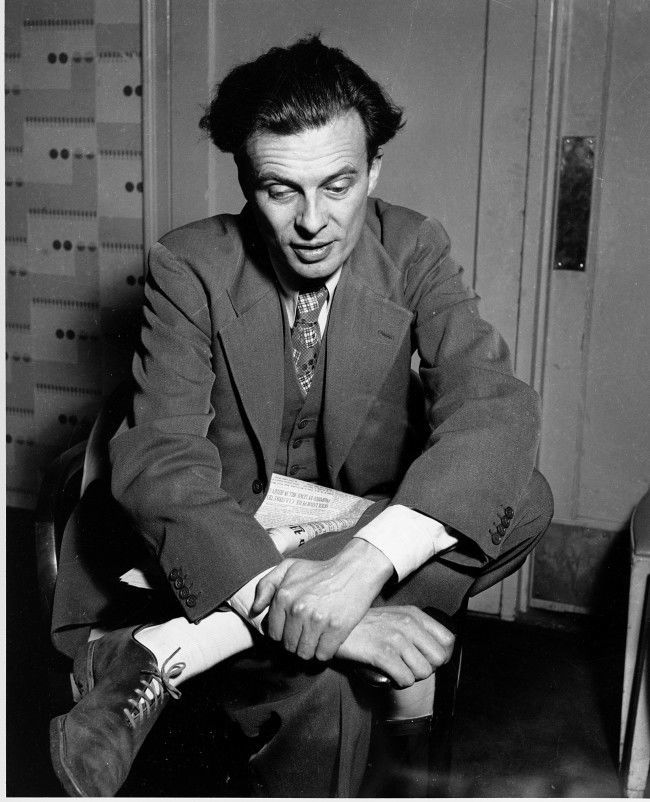
British novelist and essayist Aldous Huxley is photographed in Feb. 1938 at an unknown location.
He spoke with Huxley, who had in the 1950s written The Doors of Perception and Heaven and Hell, books dealing with states of mind and body produced by hallucinogenic drugs. Hofmann was impressed, writing:
The alterations of sensory perceptions and consciousness, which the author experienced in a self-experiment with mescaline, are skillfully described in these books. The mescaline experiment was a visionary experience for Huxley. He saw objects in a new light; they disclosed their inherent, deep, timeless existence, which remains hidden from everyday sight
These two books contained fundamental observations on the essence of visionary experience and about the significance of this manner of comprehending the world—in cultural history, in the creation of myths, in the origin of religions, and in the creative process out of which works of art arise. Huxley saw the value of hallucinogenic drugs in that they give people who lack the gift of spontaneous visionary perception belonging to mystics, saints, and great artists, the potential to experience this extraordinary state of consciousness, and thereby to attain insight into the spiritual world of these great creators. Hallucinogens could lead to a deepened understanding of religious and mystical content, and to a new and fresh experience of the great works of art. For Huxley these drugs were keys capable of opening new doors of perception; chemical keys, in addition to other proven but laborious ” door openers” to the visionary world like meditation, isolation, and fasting, or like certain yoga practices…
In The Doors of Perception and Heaven and Hell, Huxley’s newly-published works, I found a meaningful exposition of the experience induced by hallucinogenic drugs, and I thereby gained a deepened insight into my own LSD experiments.
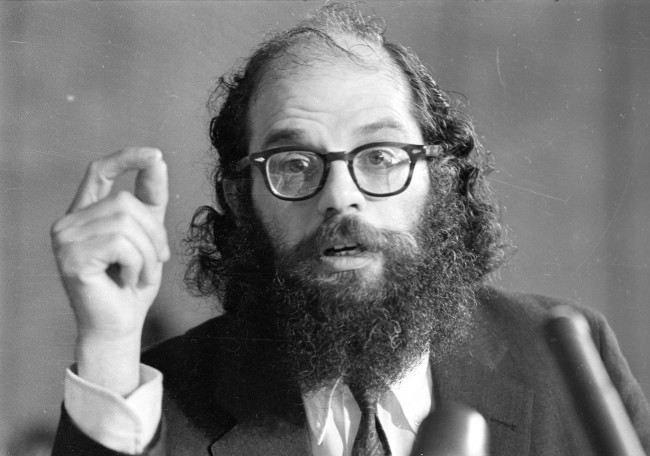
Poet Allen Ginsberg, creative writer of the “Beat” generation, praises the effects of LSD and discounts its alleged dangers during testimony before a Senate Subcommittee on Juvenile Delinquency in Washington D.C. on June 14, 1966.
Huxley called. They would meet in Zurich:
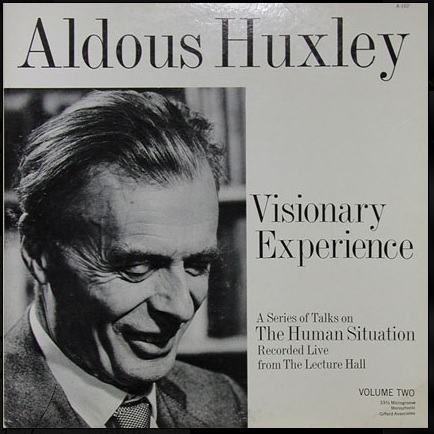
He considered experiments under laboratory conditions to be insignificant, since in the extraordinarily intensified susceptibility and sensitivity to external impressions, the surroundings are of decisive importance. He recommended to my wife, when we spoke of her native place in the mountains, that she take LSD in an alpine meadow and then look into the blue cup of a gentian flower, to behold the wonder of creation.
As we parted, Aldous Huxley gave me, as a remembrance of this meeting, a tape recording of his lecture “Visionary Experience,” which he had delivered the week before at an international congress on applied psychology in Copenhagen. In this lecture, Aldous Huxley spoke about the meaning and essence of visionary experience and compared this type of world view to the verbal and intellectual comprehension of reality as its essential complement.
You can hear Visionary Experience here:
In one letter Huxley wrote to Hofmann:
. . . I have good hopes that this and similar work will result in the development of a real Natural History of visionary experience, in all its variations, determined by differences of physique, temperament and profession, and at the same time of a technique of Applied Mysticism—a technique for helping individuals to get the most out of their transcendental experience and to make use of the insights from the “Other World” in the affairs of “This World.” Meister Eckhart wrote that “what is taken in by contemplation must be given out in love.” Essentially this is what must be developed—the art of giving out in love and intelligence what is taken in from vision and the experience of self-transcendence and solidarity with the Universe….
You don’t have to endorse the use of drugs to see that they can be useful to some people.
Would you like to support Flashbak?
Please consider making a donation to our site. We don't want to rely on ads to bring you the best of visual culture. You can also support us by signing up to our Mailing List. And you can also follow us on Facebook, Instagram and Twitter. For great art and culture delivered to your door, visit our shop.

